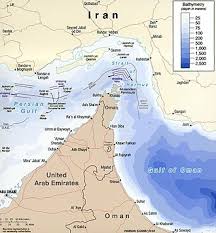Understanding Oppenheimer: The Father of the Atomic Bomb

Introduction
J. Robert Oppenheimer, often referred to as the “father of the atomic bomb,” is a figure whose contributions significantly shaped the course of history. His role in the Manhattan Project during World War II led to the creation of the first nuclear weapons, an achievement that altered the dynamics of power globally and opened dialogues around ethics in scientific advancement. Understanding Oppenheimer’s life and work remains relevant today, particularly as debates surrounding nuclear energy and weaponry continue to evolve.
Key Achievements and Contributions
Born on April 22, 1904, in New York City, Oppenheimer displayed early brilliance in academics, excelling in both science and literature. He studied at Harvard University and later pursued his Ph.D. in physics at the University of Göttingen, Germany. His early career was primarily in theoretical physics, but his expertise was called upon during World War II as the scientific director of the Manhattan Project, based at Los Alamos, New Mexico.
Under his leadership, the project developed and tested the first nuclear bombs, successfully detonating the first atomic bomb on July 16, 1945, in the New Mexico desert. This event, known as the Trinity Test, marked a pivotal moment in history. Subsequently, atomic bombs were dropped on the Japanese cities of Hiroshima and Nagasaki in August 1945, leading to Japan’s surrender and the end of World War II.
Post-War Life and Ethical Concerns
After the war, Oppenheimer’s views about nuclear weapons shifted significantly. He became a vocal advocate for international control of nuclear energy and weapons, fearing the potential for catastrophic consequences from nuclear proliferation. His stance put him at odds with some government officials and resulted in a loss of security clearance during the Red Scare, where he was implicated in being sympathetic to communist ideals.
Oppenheimer later remarked about his feelings of dread regarding the destruction capabilities of the bomb, famously quoting the Hindu scripture, the Bhagavad Gita: “Now I am become Death, the destroyer of worlds.” This perspective highlights the ongoing ethical discussions around scientific advancement and its implications for humanity.
Conclusion
The legacy of J. Robert Oppenheimer continues to resonate today, as the world grapples with the complexities of nuclear energy and weaponry. His life serves as a testament to the duality of scientific progress—capable of both remarkable advancements and unprecedented destruction. As nations navigate the challenges of modern geopolitics, Oppenheimer’s story remains a critical case study on the responsibility that comes with scientific discovery. Understanding his contributions underscores the need for conscious ethical considerations in the pursuit of knowledge, reminding us all of the delicate balance between innovation and morality.









